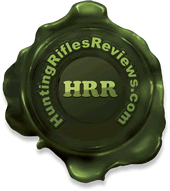Goose Calling Instructions
An essential component of goose hunting, calling plays a major role in turning the balance of success in your favor. Most of the times, placing a decoy and waiting for a bird to come is just a waste of time because it rarely happens that way. Instead, everybody uses callers as an auxiliary method of luring prey close enough to take a shot. Learning which type of callers to use and the best way to use them is not easy, but once learnt it will be a constant advantage for you.
The whole goose calling concept is based on knowing to pick the right time when to use a caller rather than the way to make the call. This refers to knowing if a certain goose or a flock of geese is callable or not, by looking at the way they fly and move around, by the way they treat the decoys you placed and other aspects as such. If the flock of geese you're watching flies unorganized and relatively low or they flap their wings in a fast rate, then they are most likely to respond to calling. However, these signs are not universally true so try instead to see if your decoys change the way they move or if they make them curious in some way. Once you've got a positive reaction it is time to make the call itself.
The whole goose calling concept is based on knowing to pick the right time when to use a caller rather than the way to make the call. This refers to knowing if a certain goose or a flock of geese is callable or not, by looking at the way they fly and move around, by the way they treat the decoys you placed and other aspects as such. If the flock of geese you're watching flies unorganized and relatively low or they flap their wings in a fast rate, then they are most likely to respond to calling. However, these signs are not universally true so try instead to see if your decoys change the way they move or if they make them curious in some way. Once you've got a positive reaction it is time to make the call itself.
With the help of quality goose callers, you are capable of making geese do anything you would like them to do. Many calls on the market will probably get the job done very well but you can perform so much better with custom goose calls and, on the long run, they will be worth the financial effort. These calls are louder, they are known to produce supplementary sounds and narrowly resemble the sounds of geese. There are a small number of different types of callers on the market, and what model you will need will mirror your hunting situation. There are 2 major types of goose calls: the flute call, and the short reed call. If you plan to hunt for goose over water, it is recommended that you use a flute call because it's quieter, and mellower. A short reed call over water will scare the geese as it has an extremely loud, sharp sound.
Now that you are familiar with the types of call you can get, you should also know where exactly to find high-quality custom goose calls. There are a lot of people who put together custom calls although some are better than the others. If you are after buying a flute call, try with "Tim Grounds Variable Honker". You will find it extremely easy to get the exact sounds you want of it and it is very realistic, just right for hunts over water. When you are shopping for goose flutes, find one that is made of wood as wood calls make a much mellower sound than any acrylic or plastic.
It can be a very hard thing to use a goose caller, because you have to take many things into consideration: the hand position, air pressure, tongue position and so on. You have to practice different air velocities and hand positions as well as others in order to reproduce the sound you like.
Short reeds work very well when hunting in open fields and the volume and aggressiveness of this type of call is what allows it to work so fine.
Geese tend to make the most racket when landing, they happen to be very loud and vocal - with a short reed you can get just like that, so you can bring the geese to you.
You will want to be sure you include a loud call inside your hunting bag since there isn't anything that will turn geese from distance superior to a loud call.
Learning how to call geese is not easy, but the reward will pay for it all. Also, make sure you pick up a fine instructional tape, which will put you on your way as most of the tapes will teach you how to use the calls, and how exactly to make the correct sounds needed to attract the geese. Some tapes also tell the hunter when to use certain sounds.
Now that you are familiar with the types of call you can get, you should also know where exactly to find high-quality custom goose calls. There are a lot of people who put together custom calls although some are better than the others. If you are after buying a flute call, try with "Tim Grounds Variable Honker". You will find it extremely easy to get the exact sounds you want of it and it is very realistic, just right for hunts over water. When you are shopping for goose flutes, find one that is made of wood as wood calls make a much mellower sound than any acrylic or plastic.
It can be a very hard thing to use a goose caller, because you have to take many things into consideration: the hand position, air pressure, tongue position and so on. You have to practice different air velocities and hand positions as well as others in order to reproduce the sound you like.
Short reeds work very well when hunting in open fields and the volume and aggressiveness of this type of call is what allows it to work so fine.
Geese tend to make the most racket when landing, they happen to be very loud and vocal - with a short reed you can get just like that, so you can bring the geese to you.
You will want to be sure you include a loud call inside your hunting bag since there isn't anything that will turn geese from distance superior to a loud call.
Learning how to call geese is not easy, but the reward will pay for it all. Also, make sure you pick up a fine instructional tape, which will put you on your way as most of the tapes will teach you how to use the calls, and how exactly to make the correct sounds needed to attract the geese. Some tapes also tell the hunter when to use certain sounds.
Goose Calling Videos
General Info
Top 3 Popular Species








